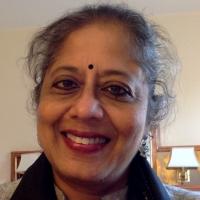
I was recently invited to be part of a selection committee for recruiting an assistant professor in the Centre for Women’s Studies at Jawaharlal Nehru University in Delhi, a prestigious central university. I readily agreed; not only because I had seen the Centre emerge and grow from strength to strength but because I was convinced that augmenting it with new recruits could only help consolidate the hard work done by a generation of committed academics. I now regret my decision to join the panel, because what followed was not only farcical in terms of the selection process but was an exercise in trivialising the discipline of women’s studies itself. I write this, therefore, to voice my concerns about the dumbing down of academic work, which is bound to have serious consequences for the future of democracy in terms of training students and sustaining a viable ecosystem of academic research.
Women’s studies in India and the world emerged in the wake of women’s movements, bringing about a much-needed shift in perspective in the humanities and social sciences by looking at women as active subjects rather than passive objects. The methodological challenges of this shift warranted the crafting of an interdisciplinary subject, and pioneering historians, sociologists and economists devised protocols for conducting research within the new discipline, generating over time a body of critical scholarship.
The new discipline involved innovative reading strategies and engagement with under-studied and lesser-known archives, which helped to reconceptualise analyses of family, marriage, and patriarchy. The specificity of the cultural context in the case of South Asia also interrogated the validity of universal concepts such as Marxism and feminism, and brought to the fore a range of important conversations about Brahmanical patriarchy in early India, its regional, class and caste variations and the continued invisibilisation of women behind the rhetoric of development. Indeed, the development of the discipline mirrored the strides and advances, albeit faltering, that women made in the decades after independence.
Under the circumstances, I was hopeful that the selection process would give us the opportunity to engage with robust scholarship and critical conversations about epistemological and methodological frameworks. What happened instead was a tragicomic farce. Applicants (about 70 in number) invited to the interview were repeatedly told by several members of the panel that women’s studies needed radically Indic reimagining, and that because they had done work in allied fields—history, politics and international relations—they could not be expected to contribute to women’s studies, ignoring the inherently interdisciplinary nature of the area to begin with.
The interview process too was a sham. Each candidate had to respond to questions from only one of the selection committee members, who were told at the very outset that the Vice Chancellor’s word was final no matter, what the committee thought. (One wonders what the point of having a selection committee is if their input is treated as meaningless from the beginning.)

Representational image. Photo: PxHere/rawpixel.com/Public Domain.
The panel then proceeded to badger the candidates relentlessly while ignoring what they had to say. Women candidates were occasionally given compliments on their clothing and demeanour, as though this were in any way relevant to the interview process. Applicants were routinely interrupted; one of the committee members even asked whether rural women were ‘happier’ than urban women and why scholars were always critical of government policies, never praising it for the initiatives it had undertaken.
It did not appear, however, that he was interested in what the candidates had to say in response to his barrage of questions, as he chose to answer them himself without even waiting for them to speak. The questions asked had very little to do with the discipline of women’s studies or indeed with gendered perspectives. At every conceivable point, applicants were asked to respond with “yes” or “no” statements in a process that often seemed almost like an interrogation in a police station.
When the meeting reconvened after breaking for lunch on the second day, there was no discussion whatsoever of the proceedings or of the scores we had been asked to make for each candidate. I was simply told that an applicant had been selected and that I was free to either accept or record my dissent. The fact that I dissented is irrelevant; what is important is the way the process was conducted and the systematic way the discipline was trivialised, with no interest in what the applicants had to say about their research and academic perspectives.
The episode was an eye-opener as it brought home the sheer arbitrariness of the process of selection. The nature of the discussion was at best pedestrian, at worst offensive. The fact that I was forced to accept a brute majority in the decision taken, without even the formality of a discussion, speaks to the crisis of democracy we face. The story of recruitment is part of the story of what is happening everywhere in public life.
The fact that the applicant chosen was, on both paper and performance, far inferior to several others, indexes a bias that is dangerous. The fact that the panel rejected both etiquette and content in the interview process smacks of a mentality that befits bullies not educationists. It is time the establishment introspects, and takes a leaf, if not from any ‘westernised Marxist protagonist’, at least from Sulabha, the gentle proto-Buddhist renunciate who centuries ago, in her contest against Janaka, laid down norms for conversations that could be mutually productive and enriching.
Lakshmi Subramanian is a retired professor of history from the Centre for Studies in Social Sciences, Kolkata. She is a visiting professor of history, BITS, Pilani, Goa.






